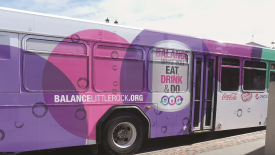

Policies & Research
Among other responsibilities, ABA works with its member companies to develop voluntary guidelines and policies that are based on sound science and address relevant topics in the public dialogue.
More on our Policies & Research

Balance Calories Evaluation
ABA and its member companies committed to public reporting on progress being made on the Balance Calories Initiative. To measure and monitor progress over time, ABA and the Alliance for a Healthier Generation retained Keybridge as an independent evaluator. Benchmark and progress reports will be posted as they become available.

Scientific Research
ABA sponsors research that seeks to answer scientific questions about the products its members make and the ingredients these products contain. The research contributes to the body of scientific knowledge that enables beverage consumers to make informed choices and/or supports the needs of regulatory agencies and other stakeholders. Importantly, ABA’s scientific research mission is to inform and clarify discussion through scientific inquiry held to the highest standards of integrity.

Guidance on Marketing to Kids
ABA member companies voluntarily implemented The International Council of Beverages Association's Guidelines on Marketing to Children. These guidelines have helped transform the landscape of children’s advertising, ensuring parents and caregivers are better able to determine what is appropriate for their children to have. With this step, beverage companies recognize that more care must be taken to restrict advertising to children.

Responsible Energy Drink Policies
ABA member companies who make mainstream energy drinks voluntarily adhere to the ABA Guidance for the Responsible Labeling and Marketing of Energy Drinks, which, among other things, outline that energy drinks are not to be marketed to children, including the marketing or sale of energy drinks in schools between grades K-12.

Default Beverages in Children's Meals Policy
ABA and America's leading beverage companies recognize that parents are more than capable of making the food and beverage choices that are best for their families. When it comes to their youngest children, we have repeatedly heard from parents that they believe that water, milk or juice are the best options. However, they also want to be able to select another beverage available on the menu, such as a soft drink, if they choose.

Reducing Our Plastic Footprint
ABA and America's leading beverage companies have developed an innovative metric for tracking the use and impact of our plastic bottles, or our plastic footprint. ABA developed the parameters of the plastic footprint and engaged with World Wildlife Fund to ensure the metrics are based on sound principles.

Safety of Aspartame
More than 100 studies, 200 scientists across 90 countries say the same thing: aspartame is safe. For over four decades, the Food and Drug Administration has confirmed this to be true with six separate reviews of the science, most recently in 2018. See the science yourself at the link below.
